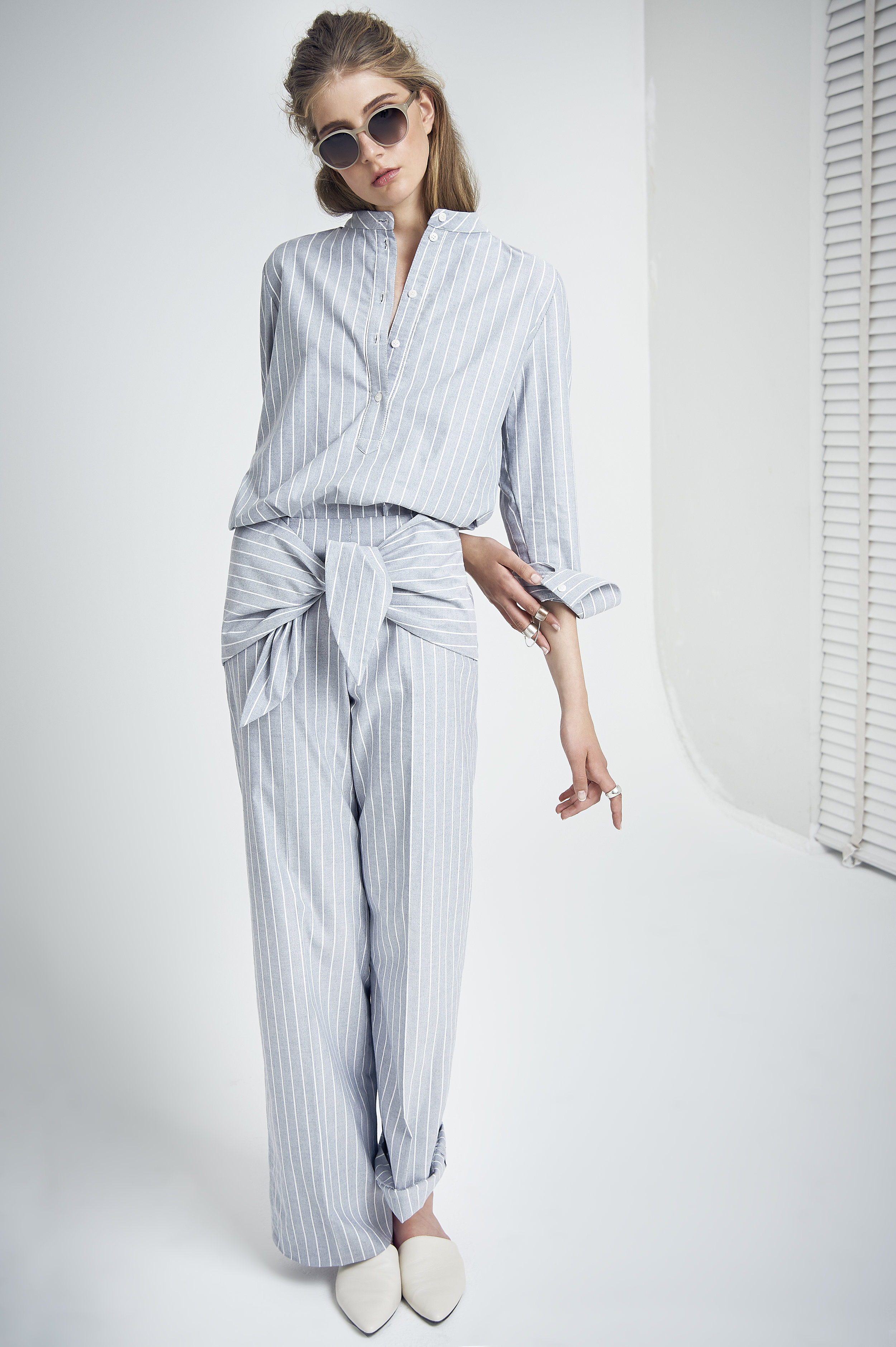Hear the story of Anna and Jula – the women behind Hamburg’s sustainable, fair and transparent eco fashion label, Jan ‘n June. Mixing experimenting with superior knowledge on the industry’s most exciting new materials, they are not afraid to change the public’s perception of eco-fashion. This sustainable fashion startup has set a goal to bring in a lot more youthful spirit to the industry, proving that sustainable fashion is far from boring, and they’re succeeding.
Words: Aleksandra Medina
Image: Anna and Jula, Founders of JAN 'N JUNE.
What’s the story behind the name, Jan'n'June?
The story is simple but personal: it’s a mix of our birth months, January and June.
One of your company’s goals is to change the perception of eco-fashion. What are the main principles you swear by when it comes to achieving your end goal?
We wanted to prove that eco-fashion can be fashionable and affordable, too. When thinking of eco-fashion, you could still come across some terrible prejudices (too expensive and/or too 'granola', if we may so state), and the business sometimes lacks a little 'coolness'. We truly believe in sustainability. But you’re not gonna buy clothes just because they are sustainable. It’s your second skin and personal style, which says so much about you. Therefore, we always design some wardrobe basics, as well as stylish, minimal pieces. We aren’t too shy to play with cuts and fabrics.
"We truly believe in sustainability. But you’re not gonna buy clothes just because they are sustainable."
Image: Lena Scherer for JAN 'N JUNE
Anna describes herself as a 'sustainable fibres dictionary'. What are the newest discoveries, trends and ‘it’ materials of the sustainable fashion world?
Right now, a lot is happening and changing in the sustainable fabric scene, which is exciting, of course. More and more suppliers offer sustainable fabrics. We are currently interested in something that is basically eco-friendly viscose. The Austrian supplier Lenzing launched EcoVero™ last autumn. For its production, they use certified wood sources and they save a lot of water and emissions, compared to conventional viscose. Another fibre that comes from Lenzing is called Refibra™, and is made from recycled Tencel™ offcuts. We could call it circular economy at its best. Our Portuguese supplier Riopele developed a fabric named Tenowa™, which is produced from leftovers of conventional textile production. The Tenowa™ fabric has a very special touch, one side is slightly shiny and soft, and the other is rather matte and grainy. Unconventional structures and surfaces are all we are looking for.
Image: Lena Scherer for JAN 'N JUNE
Anna and Jula, you two built the company from ground up together, and you mention it took you about a year. What was the process like? Any advice for other women reading this who wish to start their own business?
The process was clearly not as easy as we had thought in beginning. And it’s still a lot of work! But we always had such a great support from our friends and family, which made it a lot easier. We think experiences and knowledge prepare you for a lot in life, so collect them as much as you can. A decent cash flow is important, and you will probably need more money than you thought you would. But if you keep yourself pushing forward and accept some plan changes, starting your own business will definitely pay off at some point. Oh, and also do keep in mind that plan A never works out. Neither does plan B.
"We think experiences and knowledge prepare you for a lot in life, so collect them as much as you can."
Image: Lena Scherer for JAN 'N JUNE
Image: Lena Scherer for JAN 'N JUNE
Clearly, there’s a lot of MacBooks, phone calls, cost sheets and coffee involved in running a business. Could you let us have a peek into the details of your daily routine and how you keep yourselves motivated?
What motivates us the most is the positive feedback we constantly receive. It is so nice to see happy customers that are excitedly asking for the next collection or tagging themselves in our clothes on social media. Of course, there are days where you just work on daily stuff. But when working on a start-up, you never really have a classic 9-to-5. Spontaneity is the spirit for creativity, and you can sometimes see that a daily routine tends to be lacking it. So, every now and then, we remind ourselves to not only work for our company, but also to work on our ideas.




